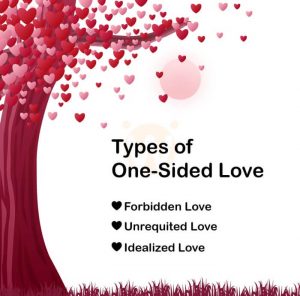How to Stop Over-apologizing | Why do Some People Always Say Sorry?
By Prapoorna M
Last Updated: November 27, 2021
Are you one of those who have the word “Sorry” at the edge of their tongue? Do you seek forgiveness for a perfectly reasonable request or for unpleasant circumstances that are not under your control? Does it feel like your responsibility? Then, we’re really sorry, it’s not your responsibility, but you just feel it so!!
Don’t worry, you’re not alone who fits into this situation, uncomfortably.
Blurting out a sorry for an accidental collision in the street though not your fault, feeling apologetic before asking for a request, hesitating to ask for permission or a leave at your office though you seldom do it, feeling sorry for not responding to a call, last week (thinking till today), or maybe feeling bad for not giving alms to that poor beggar, while you were in the traffic, yesterday morning etc. etc., are all the result of your over-apologetic nature.
This self-defeating pattern of yours is not only exhausting to you, but also for many around you. This happens when we hold other’s opinions and feelings overly high regard than ours. It is quite common for many of us, to give importance to other’s opinions when we host someone. But when it becomes a habit, we tend to make it a character trait. Though we suffer from this, we prefer to convince ourselves saying that everything is going fine. But, what happens internally?

What Happens with this?
While sorry can be so powerful to build trust and cordial relationships among people, it is essential in assessing yourself and provides a way for the world to view you in a certain way. Over-apologizing could do the exact opposite of this. Inculcating the habit of apologizing for more than necessary, could bring many negative side-effects. Some of them are the following.
- It could show a remark on your career costing you a promotion, as over-apologizing could showcase you as a failure. Leadership requires the backbone and apologizing without a mistake projects you as a timid.
- Apologizing always and being a very submissive person, someone might send a message that having personal space is a mistake.
- It’s the most detrimental effect and long-lasting negative effect will be on especially on your self-esteem, confidence and your personality, as it could slowly make you believe that you deserve it.
- Saying sorry too much is a common problem in women (though not uncommon in men) to uphold the value of politeness, as it is taught from childhood that being nice equates to likability.
- Unnecessary sorry essentially quotes as saying it for your existence. Isn’t it enough to kill your personality?
- When someone repeatedly lies, no one believes them. Saying a sorry unnecessarily has the same effect.
- You might be subconsciously seeking reassurance, but no, it won’t appear that way.
- This undermines your self-worth and your capacity of manifestation of abundant life.
But, Why?
At last, why do people take up such habits, though they suffer internally? Well, there could be many reasons for this. Some of them are like mentioned below.
- It could stem as a way to avoid conflict. Many of us, don’t want to face conflict and as a way to avoid any, people often tend to say sorry, without actually realizing that it’s not their mistake.
- It could come up as a pre-emptied space-keeping strategy and a pattern of claiming responsibility to make the problem disappear one might say a sorry. But at times, though you say a sorry, trying to prevent the problem you would end up in creating a fight because of your sorry.
- In many, it could be mostly because of the insecurity and self-doubt. Over-apologizing could also be due to insincerity and powerlessness people feel in certain situations.
- You say sorry too much if you are compassionate much and give preference to other’s feelings
- Lack of self -confidence and faith in your arguments could lead you to apologize without a reason
- Coming from a strict background and having authoritarian parents could be the other cause
- Living in a continuously anxious state, as if living in an underlying sense of impending doom could be the cause of this apologetic nature.
What to do?
If you’re looking to stop your habit of saying sorry too much, read to know some strategies on how you can stop it.
Try to willingly pause before you say a sorry. It’s okay to stop and think and it won’t be the end of the world. Just pause yourself and think, “Have I done anything wrong now?” You would understand that you need not really apologize. Initially, it could make you so anxious to stop yourself. But, try doing it.
When you encounter a situation, where you want to be apologetic but really don’t know if you have to, like for instance, “Sorry for making you wait” could be put in other words, like, “Thank you for your patience”. Appreciating someone could really win hearts.
If you want to express your compassion towards a person or a situation, try doing it differently than you usually do. Try to reduce the usage of sorry. When you feel sorry about something, instead of saying, “I’m sorry for your loss” you may say, “Oh that shouldn’t have happened. I understand how hard it feels”. In fact, that empathizes more.
When you have to express your opinions on something, by denying what others say, replace those unwarranted apologies with accurate statements to communicate your point. For instance, rather than saying, “Sorry, but I want to deny it” you may say, “Let’s look it in another way” or “I feel the need to emphasize another point of view here”
When you don’t know what to say except that apologetic word and don’t know how to start or continue without it, but you understand that you need not apologize, then, just stay calm. Embrace silence rather than uttering a sorry. Understand when you are feeling the urge to say a sorry. Know your triggers and note down a list of ten instances where you say a sorry. Try working on each one of them for a week.

Concentrating on one issue per week makes you strong and gain control over yourself. While asking for more or making a request, gather your courage and dare to say words like, “Could you please do me a favor?” or “Can you make it clearer for me please”, without using a single sorry. Trying it could be hard at first, but it really helps you to build an impressive personality. Turn your apologies into gratitude. Instead of saying, “I’m sorry you had to run the errand for me” you may say, “I’m so grateful for helping me in such rush hour” puts your expression in a more elegant way and fills your mind with positivity too.
These are all the ways won how you can stop yourself from being over-apologetic. A Sorry is valuable if said when necessary, but to make it valuable, one should say only when it is necessary.
Are you feeling dull, submissive and being over-apologetic in your daily life? Looking out for professional help to lead your life like a king? Have a talk with one of our expert psychologists by booking an appointment, today.
Book your Free Consultation Today
Parent/Caregiver Info:
Client’s Details:
* Error Message









